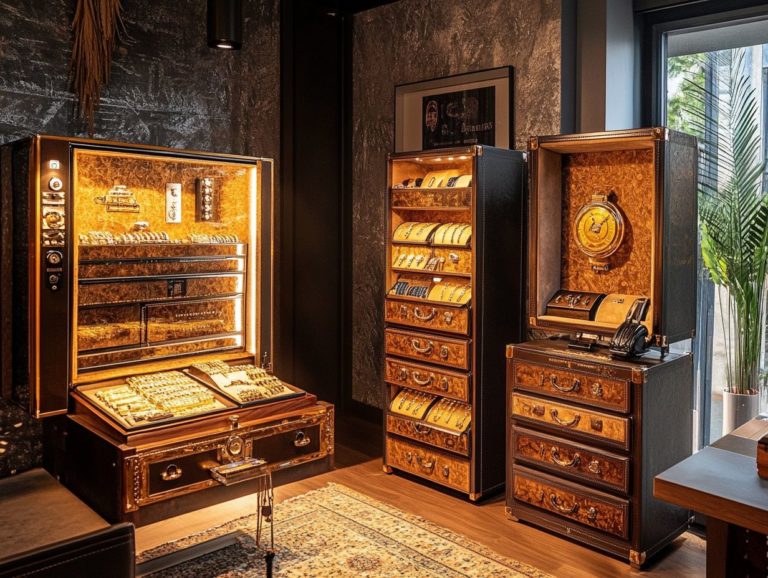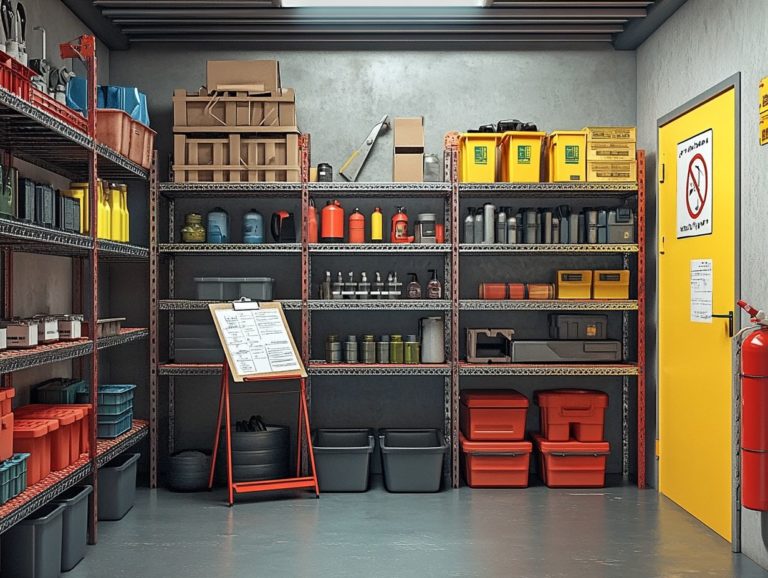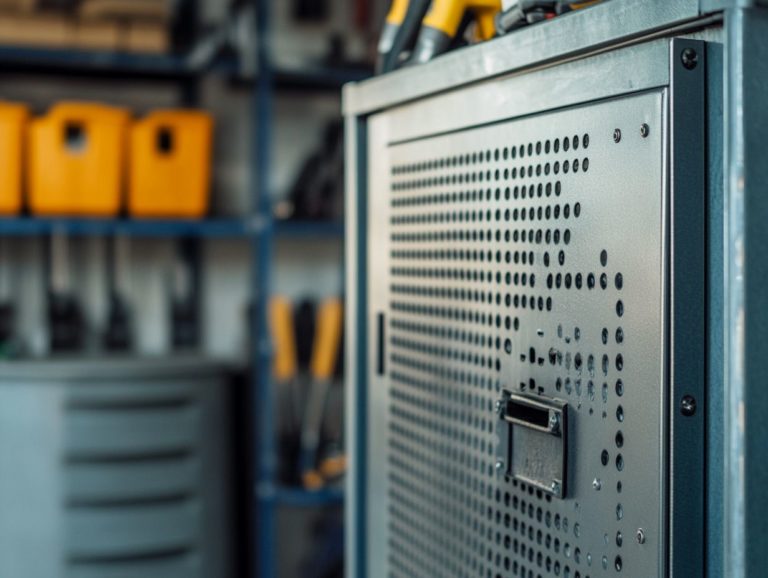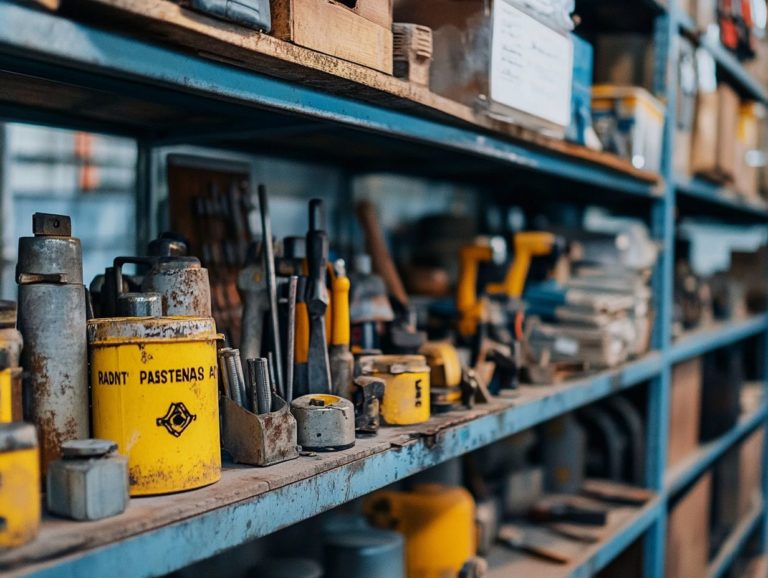Storing Precious Metals: A Beginner’s Guide
Investing in precious metals like gold, silver, and platinum can be a wise financial choice. Understanding how to store these valuable assets is just as important.
This guide explores the different types of precious metals. It evaluates the pros and cons of various storage options and offers key tips to protect your investments.
Whether you re leaning toward home storage or a bank vault, knowing what factors to consider will help you make smart decisions regarding your precious metals.
Contents
- Key Takeaways:
- Types of Precious Metals
- Factors to Consider Before Storing
- Storing at Home
- Storing in a Bank or Vault
- Tips for Properly Storing Precious Metals
- Frequently Asked Questions
- What are precious metals?
- Why would someone want to store precious metals?
- How should I store my precious metals?
- Is it safe to store precious metals in my home?
- What are the advantages of storing precious metals with a specialized storage company?
- Are there any tax implications for storing precious metals?
Key Takeaways:
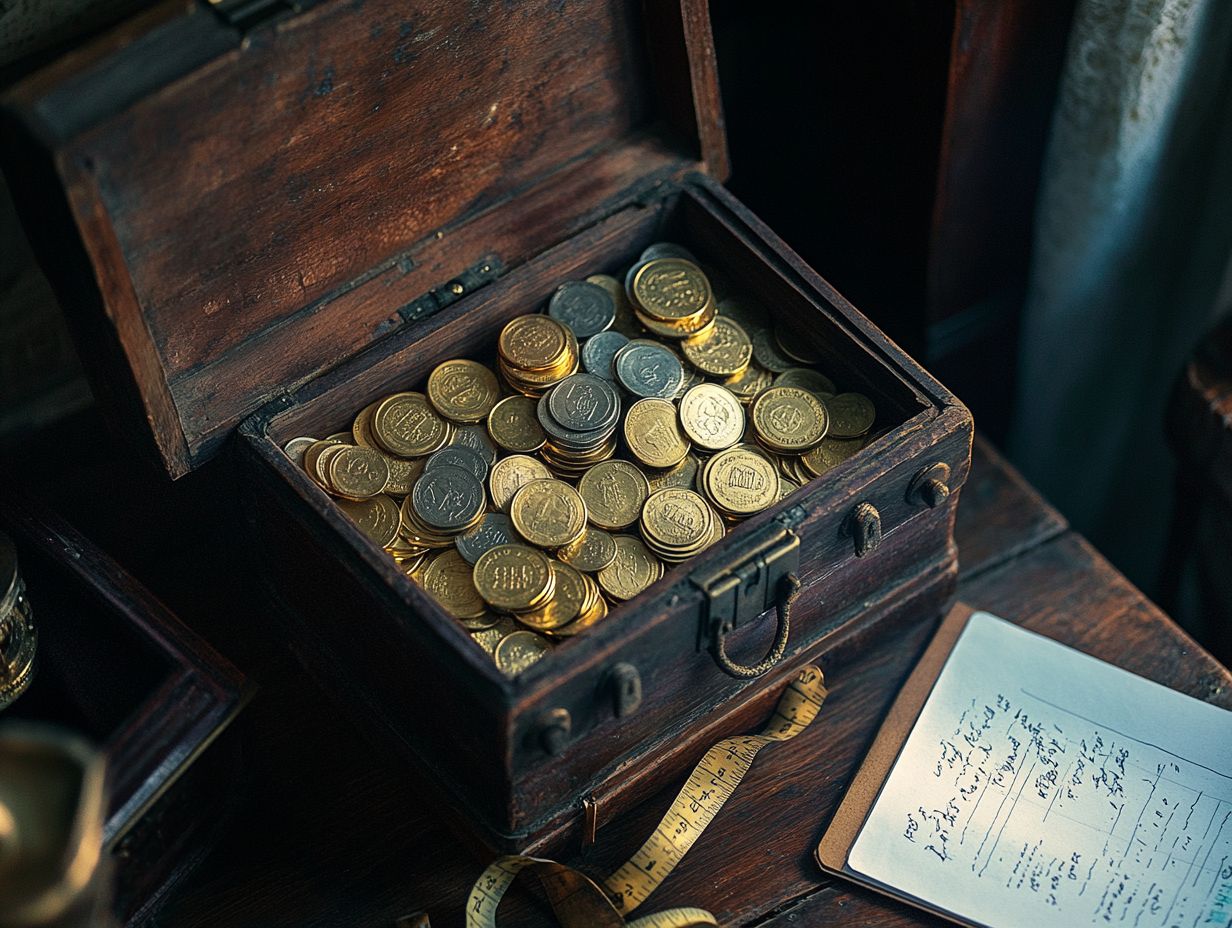
- Consider security and access before choosing a storage option.
- Home storage offers convenience but comes with possible risks.
- Follow proper storage techniques to protect your metals from damage and theft.
Why Store Precious Metals?
Storing metals like gold and silver is crucial for investors who want to safeguard their wealth. In today’s climate of rising economic uncertainty, many people see metals as a buffer against inflation and market swings.
By securing your assets in safe deposit boxes or high-security depositories, you ll feel secure knowing your assets are safe! Using the right storage methods along with solid insurance and careful inventory tracking is key to protecting these investments.
Effective storage not only shields your assets from theft or damage but also provides peace of mind. You may choose a private safe at home or professional vault services for better protection.
Having enough insurance is important to protect against unexpected losses. Tracking your inventory is essential to monitor the value and condition of your investments.
Stay updated on relevant regulations to ensure your investments remain legal and potentially profitable.
Types of Precious Metals
When exploring precious metals for investment, you ll find gold, silver, platinum, and other valuable resources, each with unique properties.
Gold is known as a stable investment during uncertain times. Silver is a great option for beginners because it s accessible and has growth potential. Platinum, while rarer, is intriguing due to its industrial uses and high demand.
Understanding these different metals is vital when planning your gold bullion storage strategies.
Gold, Silver, Platinum, and More
Investing in metals like gold, silver, and platinum allows you to spread out your investments while tapping into the intrinsic value of these assets. Each metal has distinct characteristics that cater to various investment strategies.
Gold is a reliable choice against inflation and downturns, typically gaining value when markets falter. Silver serves as both an investment and an industrial commodity, often influenced by technological demand and manufacturing trends. Platinum, being rare, is an elegant choice, especially for those familiar with its niche market.
These metals provide a stable option during financial turmoil and can strengthen your overall investment strategy when integrated wisely.
Factors to Consider Before Storing
Before choosing a storage method for your precious metals, weigh several factors that influence both security and accessibility.
Assess the security measures available, whether you re opting for a bank safe deposit box, a private safe at home, or a high-security depository. This will ensure the protection of your assets.
Understand the regulations and ensure you have insurance against theft or damage. This will safeguard your valuable investments.
Security and Accessibility
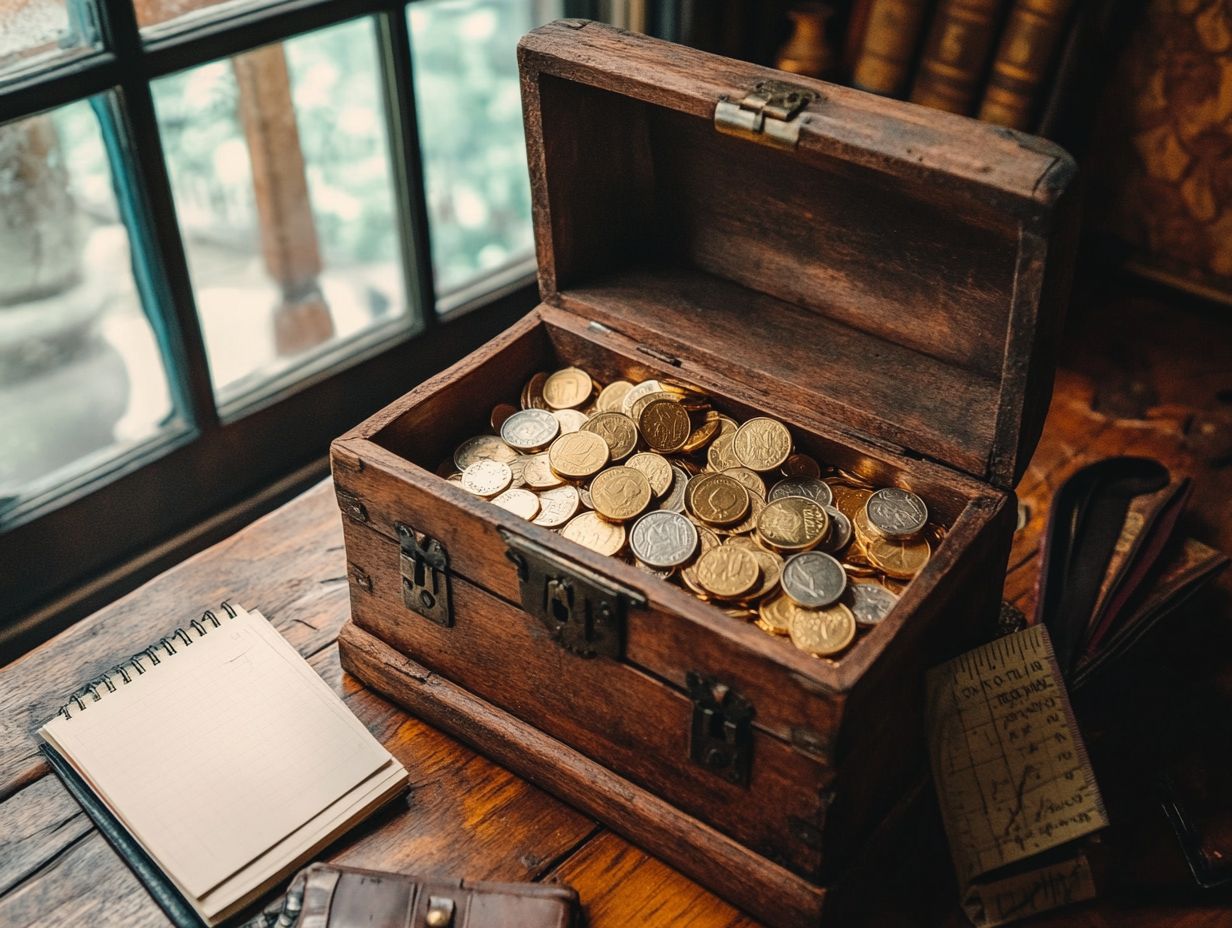
When storing your precious metals, security and accessibility are critical factors to balance. High-security depositories offer robust protection against theft, while private safes give you ownership and immediate access.
Consider the benefits of facility-based storage with cutting-edge surveillance systems against the convenience of having your metals at your fingertips. A high-security depository may come with higher fees and a complex withdrawal process, but the peace of mind it provides is invaluable.
On the other hand, a home safe offers easy access but often lacks the same level of protection, leaving your valuables vulnerable. Think about what matters most to you, your personal priorities, risk tolerance, and long-term strategy as you decide the best storage method.
Storage Options and Costs
Choosing the right storage option for your precious metals requires careful evaluation. You might consider gold storage in secure depository vaults, silver storage in private safes, or traditional bank safe deposit boxes. Each option has unique costs and levels of investment protection.
As you make your decision, weigh factors like security, insurance, and ease of access. Secure vaults provide the highest protection and typically include insurance, but they can be pricey, often charging an annual fee based on asset value.
Private safes allow greater accessibility, but assess your home security and ensure you have adequate insurance. Bank safe deposit boxes are a traditional choice at moderate costs but can limit access during emergencies.
Each option presents unique implications for safeguarding your investments while balancing convenience and costs.
Storing at Home
Storing precious metals at home offers convenience and control, but it also introduces challenges related to security and risks.
By using private safes particularly those that are fireproof and waterproof you can protect your valuable assets from theft and damage while keeping them accessible.
It s essential to evaluate the security measures in place at your home to effectively mitigate the risk of theft and damage.
Pros and Cons of Home Storage
Storing precious metals at home has advantages, such as immediate access and personal control, but it also has notable drawbacks, especially regarding security. While a private safe offers some protection, it often falls short compared to robust security measures in professional vaulting services.
The convenience of having valuables within reach can lead to a false sense of security. You can monitor and manage your assets closely, but that proximity also increases the risk of theft, accidental loss, or damage.
Home environments typically lack the advanced surveillance and climate control features that specialized storage facilities offer, which are essential for maintaining high-value items’ integrity. By comparing home storage to professional solutions, you can better assess what meets your needs while balancing ease of accessibility against potential vulnerabilities.
Don t wait! Take the steps to protect your investments today.
Storing in a Bank or Vault
Storing precious metals in a bank or vault, like safe deposit boxes or high-security depositories, offers a superior level of security and protection compared to keeping them at home.
These institutions typically employ rigorous security measures, including surveillance and access controls, to ensure your assets remain safe from theft and damage. This not only enhances the safety of your investments but also simplifies insurance coverage and regulatory compliance, allowing you to focus on what truly matters growing your wealth.
Benefits and Drawbacks
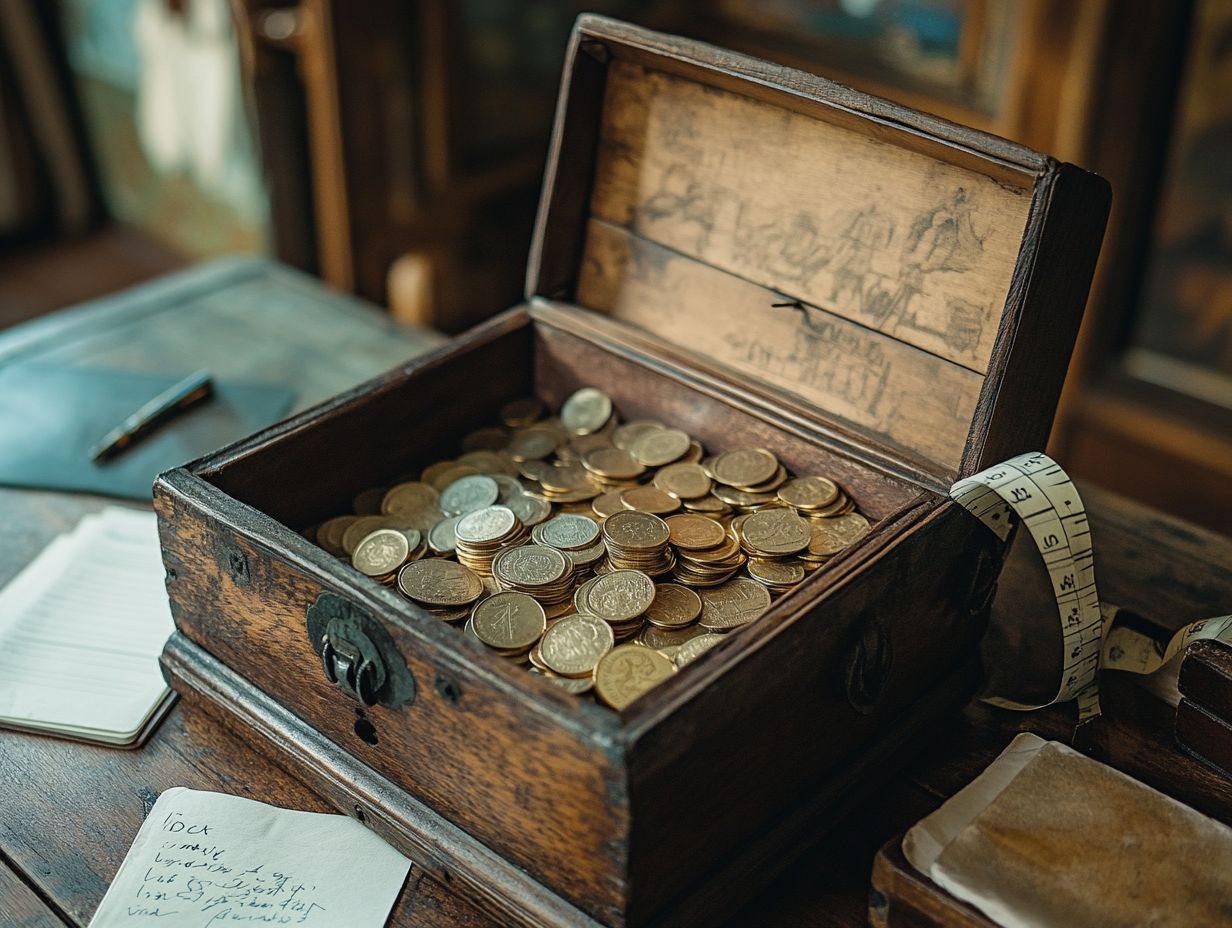
Utilizing a bank or vault for storing precious metals comes with a blend of benefits and drawbacks that you should evaluate carefully. On one hand, banks offer enhanced security through established protocols and insurance coverage. On the other, the costs associated with safe deposit boxes might make you think twice.
Beyond just physical security, banks must also follow strict rules to keep your assets safe. This can provide you with peace of mind, knowing your precious metals are in the hands of professionals. However, keep in mind that access to these assets may be limited, which might affect your ability to access funds quickly.
The costs of maintaining a bank storage account can accumulate over time, making it less appealing for those with smaller holdings. Balancing these factors is crucial for anyone aiming to protect investments efficiently.
Tips for Properly Storing Precious Metals
Properly storing your precious metals requires a thorough strategy that integrates robust security measures, meticulous inventory documentation, and appropriate insurance coverage to safeguard your investments against theft or damage.
Whether you choose to store them at home or opt for professional vaulting services, prioritize the safety and integrity of your assets.
Protecting Against Damage and Theft
To protect your precious metals from damage and theft, take action to implement robust security measures while securing adequate insurance coverage for your assets. Consider investing in fireproof and waterproof safes, utilizing professional vaulting services, and keeping an up-to-date inventory. These steps can significantly enhance the protection of your investment.
Along with these strategies, leveraging security systems such as surveillance cameras and alarms can effectively deter potential intruders, giving you much-needed peace of mind. You should explore specialized insurance policies that cover precious metals specifically, which typically include provisions for theft, loss, and damage.
Documenting your holdings helps you determine the right amount of coverage needed and streamlines the claims process should an unfortunate incident occur. Using inventory management apps or spreadsheets can further simplify tracking and appraising these valuable assets over time.
Frequently Asked Questions
What are precious metals?
Precious metals are rare and naturally occurring metallic elements that have high economic value. Examples include gold, silver, platinum, and palladium.
Why would someone want to store precious metals?
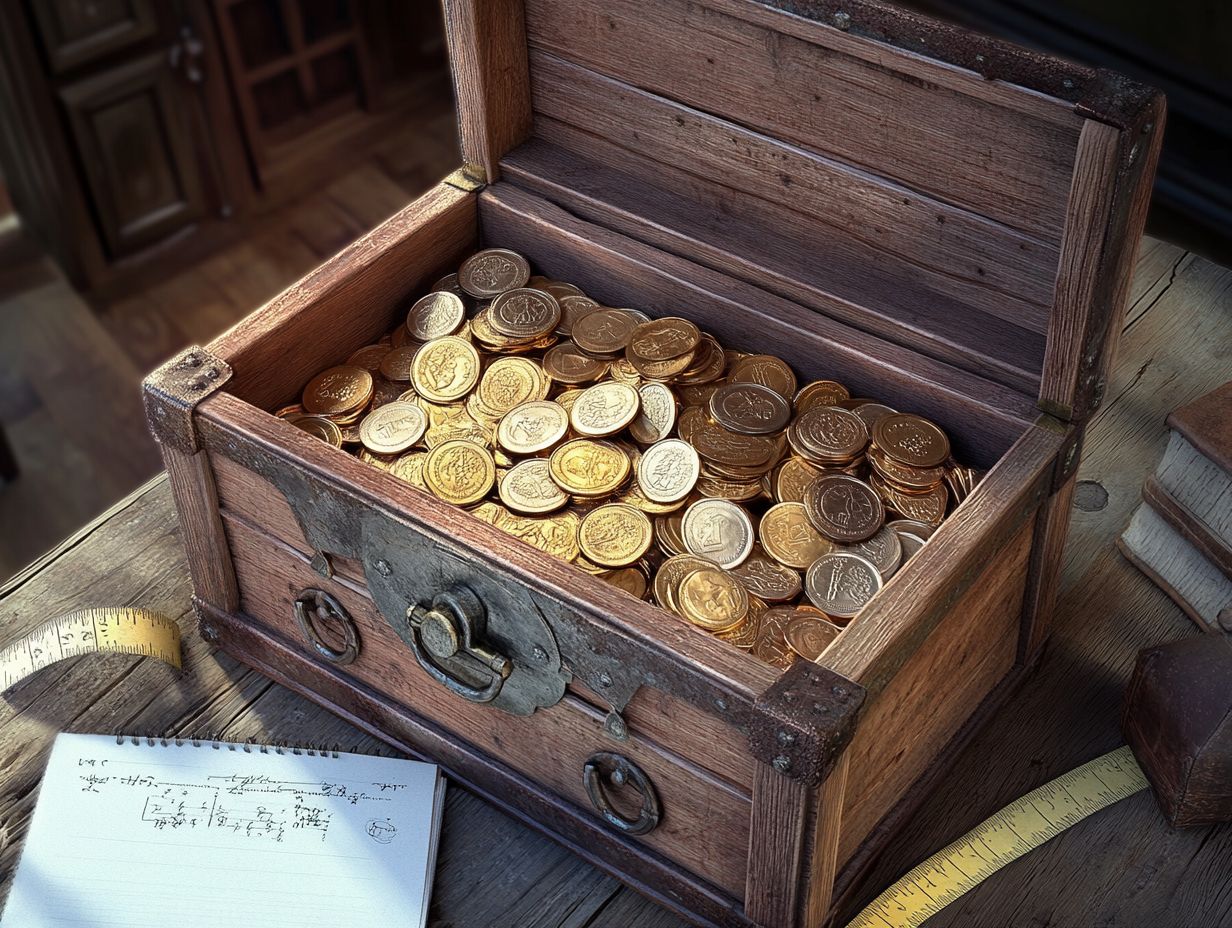
Many people store precious metals to protect their wealth and diversify their investment portfolio. Precious metals have historically maintained their value and can act as a hedge against inflation and economic downturns.
How should I store my precious metals?
There are several options for storing precious metals, including a home safe, a safety deposit box at a bank, or with a specialized storage company. Consider the security and accessibility of your chosen storage option.
Is it safe to store precious metals in my home?
While storing precious metals in a home safe may seem convenient, it comes with some risks. Consider the potential for theft, fire, and other natural disasters when storing precious metals at home.
What are the advantages of storing precious metals with a specialized storage company?
Storing precious metals with a reputable company provides enhanced security for your investment. These facilities implement advanced security measures to keep your metals safe.
Are there any tax implications for storing precious metals?
Tax implications for storing precious metals can vary based on location and the type of metals owned. Consult a tax professional to understand how it may affect you.










